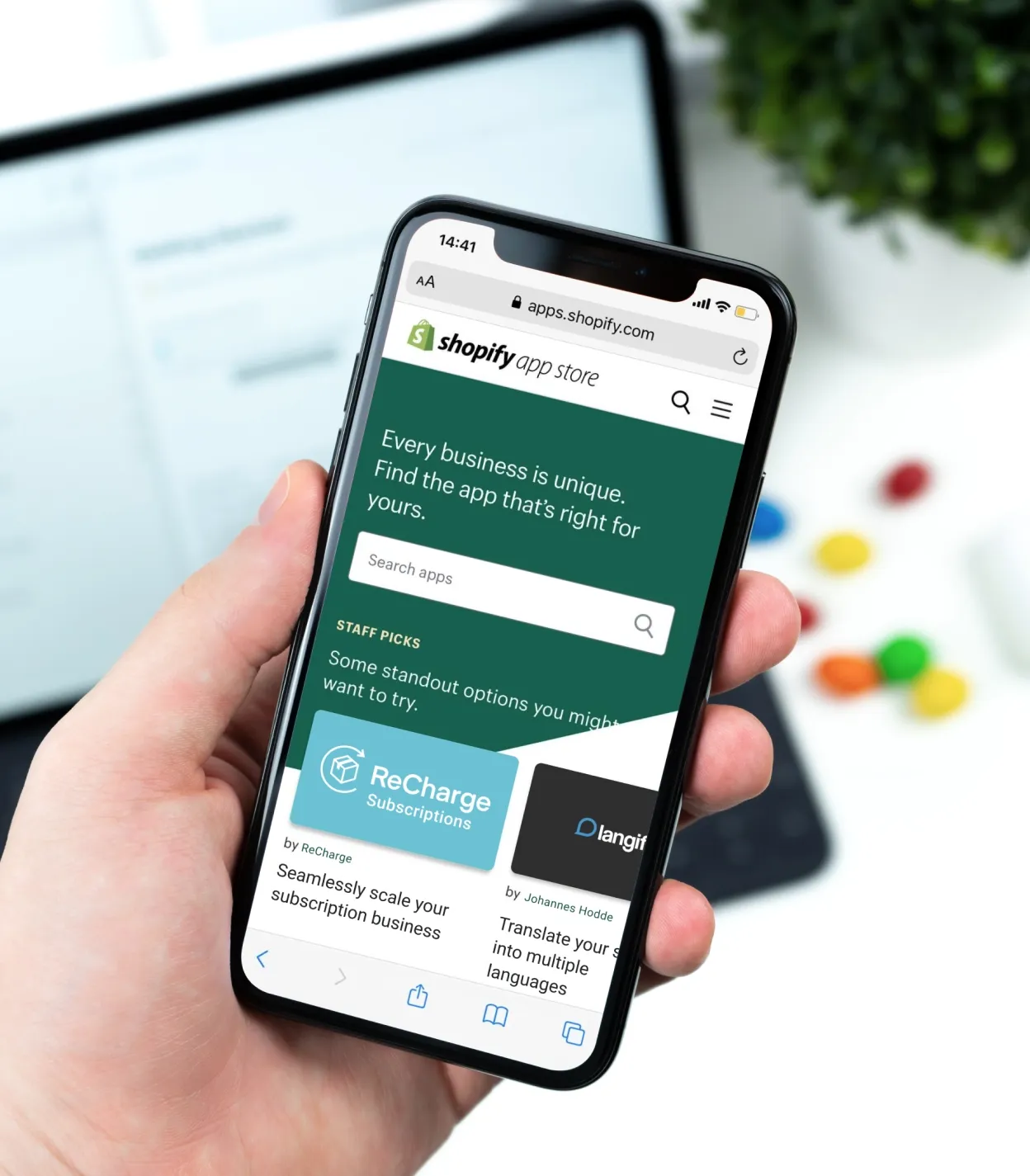
The retail landscape today bears little resemblance to its pre-pandemic counterpart. E-commerce is rapidly gaining ground, while traditional brick-and-mortar models take a backseat. Even prior to the global crisis, online sales were consistently surging. Statista predicts that global online sales will reach an impressive $6.5 billion by 2023.
However, thriving in the online sales realm is no small feat. Online merchants juggle multiple responsibilities, from fulfilling orders and pricing products to advertising on social media and managing inventory. Among these tasks, building an appealing and functional online storefront is paramount. A plethora of e-commerce platforms are available, but Shopify stands out as a top contender. Renowned for its cost-effectiveness, security, speed, flexibility, and simplicity, Shopify is a popular choice for various niches.
Originally an online store selling snowboards, Shopify emerged from the need for merchants to own their brand and foster customer relationships while facilitating sales. Born out of this necessity, Shopify was crafted by people who comprehend the struggles and requirements of online sellers. Now a leading e-commerce platform, Shopify serves over 600,000 stores due to its user-friendly setup and round-the-clock support. While perfect for swift and straightforward online store creation, building a site that truly captivates and engages buyers may demand substantial time and expertise.
Is it worth enlisting Shopify experts for your team? When is the right moment to hire remote Shopify developers? Yet, crafting a robust Shopify store or scaling an existing one isn't a novice's task. While setting up a basic Shopify site is quick, challenges inevitably arise. Issues with third-party apps causing errors or malfunctioning, managing multiple currencies and languages, and dealing with rare cases are among the challenges faced.
For these intricate problems, assistance is at hand. Enter Shopify development companies. In this blog, we unveil the core benefits your online store can gain if you hire Shopify developers.
Benefits of hiring a Shopify development company
If you want to get the greatest services, you need a proficient Shopify development company having a team of certified expert Shopify website developers, programmers, and designers like DigitalSuits. Explore our DesignRush profile to learn more details about us as a top e-commerce development company. DigitalSuits' specialists can work with your existing website or set up a completely new one that is fully customized to your project. Discover the core perks of hiring a Shopify development company:
Professional expertise
The primary responsibility of a Shopify store developer is to create a useful and competent online store for directing sales opportunities. They customize an e-commerce store's user interface based on defined brand benchmarks and enable system integrations for various components. Let us learn more about how a Shopify developer can assist you.
An experienced Shopify web developer is skilled at launching and maintaining online stores on Shopify and is well-versed in the Shopify admin system. The role of Shopify developers should understand technical web development capabilities, involve design elements, and work on Shopify's strengths with its powerful platform. Opting to hire professional Shopify developers ensures a thorough grasp of essential actions, methods, developmental processes, result extraction, and related components.
When the professionals work, undeniably, the quality will be better compared to your doings. The developers became experts with time. They achieved the skills, tackled projects with different languages & technologies, worked on the latest trends, and did many more things. So their experience will bring far better results. Shopify development will succeed when you integrate required and unique technologies, use trendy techs, and apply new ideas. The expert developers are knowledgeable and innovative to enhance the work quality.
Time and cost savings
Opting to hire dedicated Shopify developers provides a comprehensive grasp of all essential actions, methodologies, developmental processes, result extraction, and related components. Thanks to their prior experience, project completion requires minimal time and effort. Moreover, clients are spared the need to grapple with developmental challenges. Developers deftly take the reins of every phase, skillfully safeguarding and maximizing the efficiency of client's valuable time and efforts.
When choosing to handle development in-house, various cost implications can arise:
Resource expenses
Managing development internally requires dedicated staff, including developers, designers, and project managers. Hiring, training, and retaining these professionals can lead to substantial salary and benefit costs.
Infrastructure сosts
Setting up and maintaining the necessary hardware, software, and IT infrastructure can be capital-intensive. Costs for equipment, licenses, and ongoing maintenance can add up.
Overhead expenses
Running an in-house development team necessitates providing office space, utilities, and other overhead expenses. These ongoing costs can strain the budget.
Time and opportunity costs
Developing a project in-house can divert resources and attention from core business activities, potentially impacting revenue generation. This "opportunity cost" is the value lost from not allocating resources to more profitable endeavors.
Skill gap expenses
If your team lacks certain expertise, there may be a need to invest in training, workshops, or hiring new staff with the required skills, adding both time and financial commitments.
Project delays
In-house development can result in longer development cycles due to resource constraints or unexpected challenges. Delays can lead to increased costs and missed business opportunities.
Quality assurance costs
Ensuring the final product meets quality standards might involve additional testing, bug fixing, and optimization efforts, leading to increased expenses.
Lack of scalability
As your project grows, additional developers and resources may be needed to accommodate increased demand, driving up costs further.
Security and compliance
In-house development requires addressing data security and regulatory compliance measures, which can incur additional expenses for software tools and training.
Technology updates
Rapid changes in technology can demand investments in ongoing training and tools to ensure your in-house team remains up-to-date with the latest industry standards.
Considering these potential costs is crucial when you're in the stage of deciding whether to handle development in-house or explore outsourcing options that may provide a more cost-effective and efficient solution.
Customized solutions
A primary benefit of Shopify developers lies in the customizable versatility they bring to your software products. This potential can be harnessed to the fullest extent with the expertise of a Shopify developer. Hiring a skilled developer makes your online store uniquely tailored to mirror your brand's essence. They can craft distinctive design elements and introduce bespoke functionalities for your special design need that surpass the confines of the platform's standard templates. This distinctive touch rises your store on the text level above the ordinary, and your customers get an exceptional and exclusive shopping journey.
Forging deeper connections with your audience
You create an environment that resonates uniquely with your target audience by tailoring every aspect of your online presence. Every design element and scope of functionalities foster a deeper connection with users who perceive that the platform has been crafted with their needs and preferences in mind.
Customizations as a canvas for personal expression
Moreover, these customizations act as a canvas for your brand's personality and values. By using your brand's visual elements, color palette, and distinctive design language in the interface, Shopify experts ensure the user journey will be unforgettable. That makes your store instantly recognizable among a sea of options and attracts more customers as a sequence.
Tailoring functionalities for seamless user experiences
Beyond aesthetics, custom functionalities can solve specific pain points or offer innovative solutions, making the user journey smoother and more enjoyable. Features designed with your customers in mind demonstrate your commitment to their needs, further enhancing loyalty.
In essence, customizations offer a two-fold advantage: an enriched user experience that resonates on a personal level and a heightened brand presence that stands out in the digital landscape. This powerful combination not only attracts users but also keeps them engaged, building a loyal customer base that identifies with your brand's uniqueness.
How to identify the best Shopify development company
Selecting the best Shopify development company is a multifaceted process that goes beyond mere price comparison. It revolves around anticipating the outcomes essential for your business. Prior to partnering with a Shopify agency or developers, it's vital to meticulously assess the following criteria:
Portfolio and experience
How to hire Shopify developers? To initiate, begin by assessing the company's experience and proficiency in Shopify development. Scrutinize their feedback on platforms like Google and third-party websites, delve into their years of operation, and take note of any accolades they may have garnered.
Focus on your project’s needs
However, prioritize what aligns with your project's needs. If the company is newly established but has successfully executed several projects akin to yours, they're likely to excel in yours too.
Alternatively, smaller and newer firms generally boast a leaner organizational structure and fewer clients. This often translates into a higher proportion of your investment channeling directly into development and design, rather than sustaining an intricate hierarchy of teams and members. Conversely, larger agencies tend to possess more extensive expertise across diverse domains due to their involvement in numerous concurrent projects.
Going beyond portfolios
Examine the company's portfolio to gauge their familiarity with projects akin to yours. This offers insights into their capabilities and work quality. Additionally, evaluate if their work aligns with your preferences. If you're contemplating a new Shopify website design or a redesign, explore their existing portfolio and the design styles they've created. If your preferred style is uncertain, explore a variety of styles. However, remember that the displayed portfolio might not encompass all their creative abilities. For distinctiveness, request additional samples of their work.
For projects necessitating specific technical aspects, like particular integrations or product builders, skip scrutinizing the portfolio and instead inquire directly. Portfolios generally showcase visually appealing work rather than those involving intricate solutions, as highlighting design is simpler than explaining intricate technical processes.
Lastly, don't just assess the portfolio; take a closer look at the actual websites the company has crafted. This grants firsthand experience of whether the projects meet industry standards, load swiftly, and are user-friendly. Keep in mind, though, that websites might have undergone significant internal changes post-design release.
Client testimonials and reviews
Where to hire Shopify developers? Check reviews across various platforms such as Google, LinkedIn, and platforms like Trustpilot to initiate your evaluation. Analyze the consistency within these reviews and testimonials. Are the majority of them favorable or unfavorable? Do any recurrent patterns or trends emerge from the feedback? This exploration lets you get insights into the company's general standing. Discover the specifics of each review. Do they discuss particular facets of the company's work or customer service? Are any encountered challenges or issues highlighted, along with the company's resolution strategies?
Examine the reviews and testimonials for recent updates. Have there been any recent modifications to the company's offerings or products? Are there recent reviews or feedback that might indicate shifts in the company's performance or reputation?
Furthermore, focus on the company's responsiveness to feedback, whether positive or negative. Do they address concerns raised by customers? Do they take measures to enhance their services or products based on feedback? A company that actively engages with and responds to customer input can be a favorable indicator, even in the face of negative feedback!
Communication and collaboration
Select a company that boasts a transparent communication process and offers consistent support. An adept development company must be readily accessible and ensure frequent updates on your project's advancement. As a client, you should be well-informed about the project's status and anticipate forthcoming updates. For instance, at DigitalSuits, we initiate a "discovery" stage, during which we outline a comprehensive technical project scope, deliberate it with you, and establish mutual agreements on milestones and deadlines for each phase.
Technical proficiency
A Shopify development company should have a strong technical foundation to handle the complexities of your project. You need to assess their technical expertise in areas such as coding languages, API integrations, database management, and security protocols. Evaluate their knowledge of SEO best practices, mobile responsiveness, and performance optimization that is quite important for your Shopify solution performance. If you hire a Shopify expert, they can ensure that your store is secure, fast, and optimized for search engines.
Conclusion
No matter the niche you operate within, irrespective of the intricacy of your desired user interface or the features you envision for your online store, the DigitaSuits Shopify expert team is poised to swiftly and assuredly fulfill your requirements while upholding the highest standards of quality.
Our track record boasts a multitude of successfully completed Shopify development projects. In addition, as trusted development partners for our clients, we offer post-delivery maintenance and support. Thus we ensure our clients feel secure and up-to-date after the development process finishes. Their contentment stems from our unwavering dedication to their business achievements and expansion.
Digitasuits' team remains diligently attuned to the latest industry trends, continually refining our skills and knowledge while incorporating cutting-edge methodologies in both code and design within our project development.
Feel free to reach out to us for an array of frontend tasks, consultations, or optimizations tailored to your Shopify store's needs.












Was this helpful?
0
No comments yet